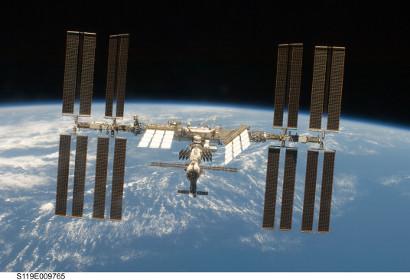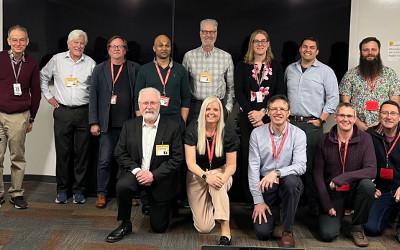OU receives £6.7 million to expand Astrobiology Research

The Open University OU) has received £6.7 million to expand its Astrobiology Research Group to address fundamental questions about life beyond the Earth. The grant is awarded under Research England’s “Expanding Excellence in England (E3) 2019-2022”.
Are we alone in the universe?
The question of whether there is life beyond the Earth is the driving force behind the decision to award the OU this important grant, which allows it to build on its 50-year track record in space science. Amongst other things, it will enable the group to address future challenges that arise from the commercialisation of space and expanding technological possibilities.
Demonstrable research excellence
The E3 fund aims to support the strategic expansion of excellent research units and departments in higher education institutions across England. In order to expand excellence, E3 focusses only on units and departments where there is already demonstrable research excellence and has the potential to expand substantially. Research England will fund the first three years of the Group’s development; with future years funded by the OU and from increased grant revenue due to this expansion.
Universities and Science Minister Chris Skidmore said: “Pushing the boundaries of knowledge and conquering new innovations are what our universities are known for the world over. This programme led by The Open University will help us in the quest to discover if there is life beyond Earth.
“The Expanding Excellence in England Fund will support projects throughout England to master new and developing areas of research and industry.
“Made possible through our record R&D spend delivered by our modern Industrial Strategy, the investment will support researchers to develop solutions and opportunities for UK researchers and businesses.”
Commenting on the OU’s success, David Sweeney, Executive Chair of Research England, said: “This grant was awarded to the OU in recognition of the fact that it will build on existing research across disciplinary boundaries to get even greater impact, helping to deliver economic and social benefits to the whole country. Greater understanding of space, and the technological and commercial possibilities it brings, will help the UK progress towards becoming the world’s most innovative economy, which is one of the goals of the government’s Industrial Strategy. So, I am delighted that we are able to use increasing government investment in research to support this.”
The Open University Astrobiology Research Group currently focuses on understanding how and where life might be found by combining field work, laboratory simulations and mission data.
The group is led by Dr Karen Olsson-Francis, Senior Lecturer in the School of Environment, Earth and Ecosystem Sciences. She said: “This is an excellent opportunity to bring together several research strengths within the Open University, especially across disciplinary boundaries and with people we would not traditionally work with within science.” She works closely with Dr Manish Patel, Dr Victoria Pearson and Dr Susanne Schwenzer.
Furthering our understanding of space and who owns it
E3 funding will build capacity in line with future space missions by furthering our understanding of extra-terrestrial environments and the potential for life beyond Earth.
The work will advance our understanding of life in extreme environments on Earth and beyond by building expertise in identifying evidence of life and in developing commercially viable microbiological solutions. It will also address scientific and governance challenges within astrobiology, particularly in relation to space exploration, societal benefits and sustainability.
Vice-Chancellor at The Open University, Professor Mary Kellett, said: “This substantial award is a testament to the value of the OU’s world-leading research and expertise in the fields of space and Earth science. This grant will enable that knowledge to advance even further; including examining the opportunities and challenges which come from space exploration.
“Our Astrobiology Research Group has well established partnerships with industrial partners, both in England and internationally. The expansion this funding will enable aligns neatly with the UK Industrial Strategy, the UK “Prosperity from Space” Strategy and contributes to Global Challenges through the application of technologies and research development capacity to developing countries. A key benefit will be the creation of jobs within the Government’s “growth corridor” between Oxford, Milton Keynes and Cambridge, strengthening the OU’s important role in this project.”
The investment will also enable productive collaborations with many others including: Dr Geraint (Taff) Morgan, Dr Matt Balme, Dr Helen Fraser, Professor Rick Holliman, Dr Sarah Davies, Professor Simon Lee and Dr Shonil Bhagwat.
Quarterly Review of Research
Read our Quarterly Review of Research to learn about our latest quality academic output.

Contact our news team
For all out of hours enquiries, please telephone +44 (0)7901 515891
News & articles
- OU signs significant deal for company to make valves for satellites 25th April 2024
- Shaping a sustainable future – the power of Open Research 24th April 2024
- New research into Pompeii to be revealed by OU/BBC co-production 12th April 2024
